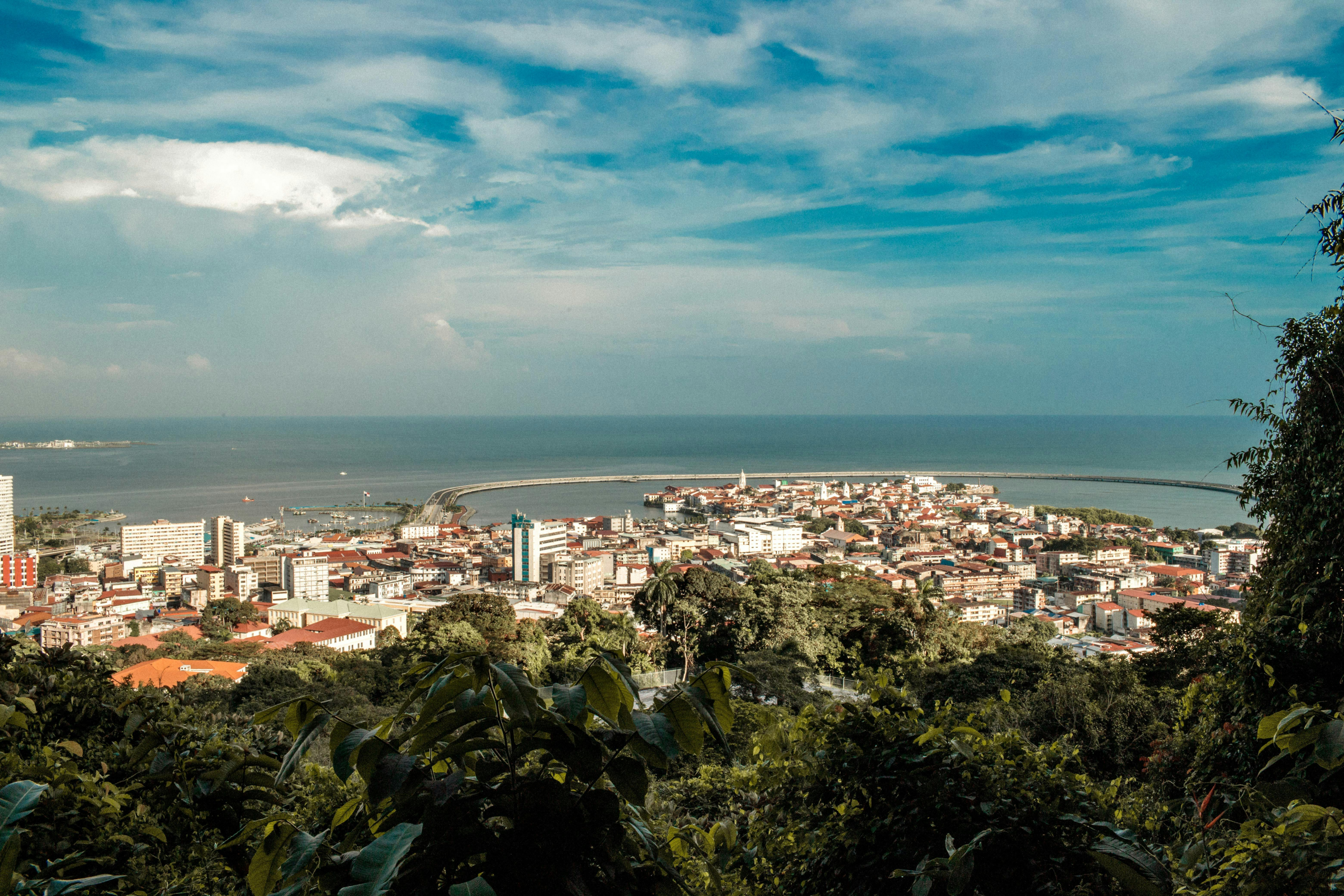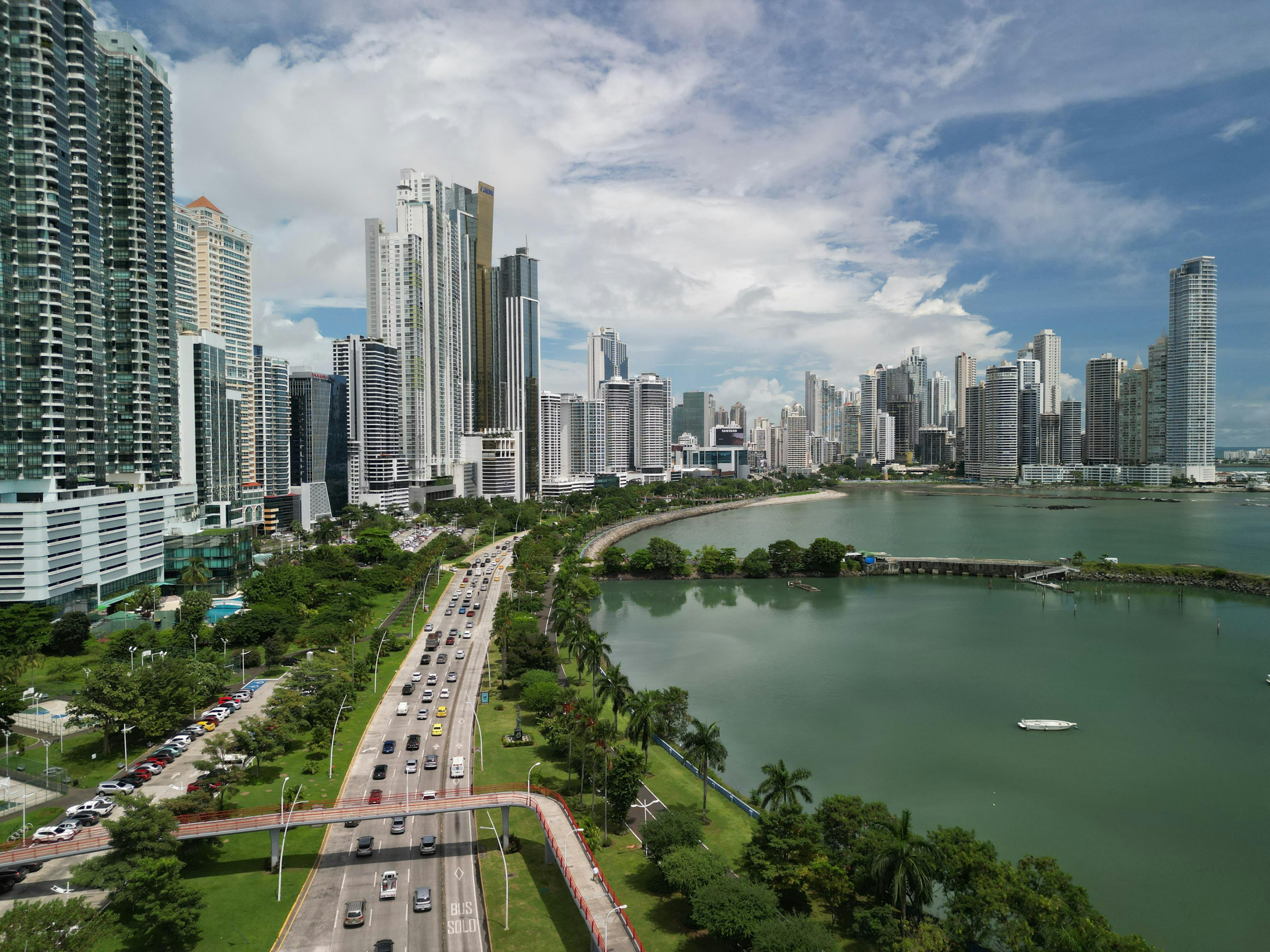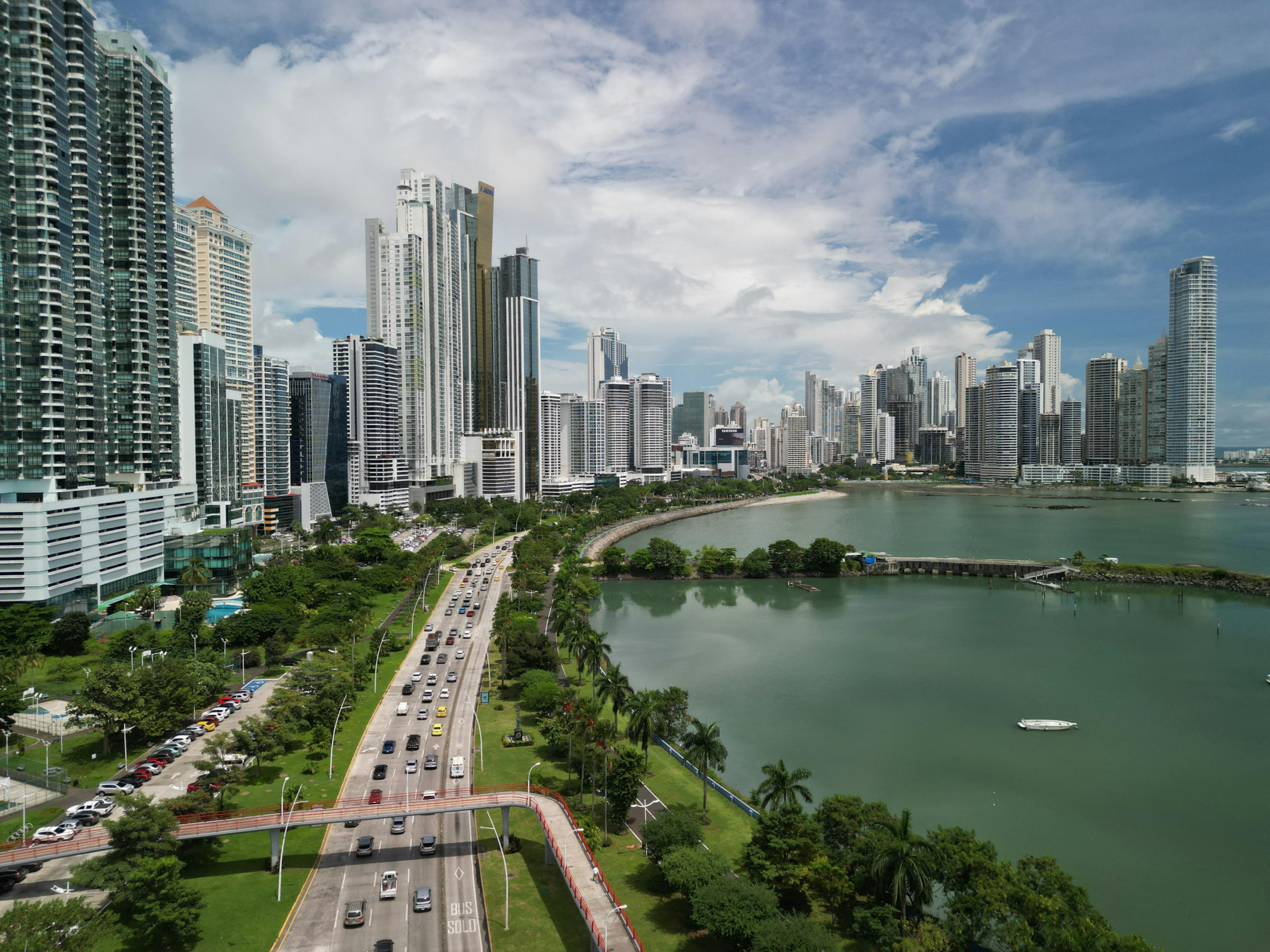
This article is apart of our weekly series associated with the The Global Subsidiary Index. The series is designed to help businesses identify the best countries for establishing a subsidiary based on key operational factors. GEOS provides a data-driven ranking of jurisdictions worldwide, assessing across 40+ criteria to bring you insights into global expansion opportunities.
Each country on the index is scored on an overall score out of 100, with each individual criterion out of 5 or 10. Higher scores indicate a more favorable environment for businesses. By leveraging these insights, companies can make informed decisions on where to establish a legal presence.
Panama is picking up momentum. After slower growth in 2024, the economy is set to rebound in 2025-2026, with growth expected to reach an average of +3.5%. Construction, infrastructure investment, and a push to modernize key sectors are driving the recovery. For companies thinking about doing business in Panama, now’s a smart time to explore the opportunities.
Its location, trade-friendly policies, and strong logistics network have made Panama a natural hub for foreign investment and regional business in recent years. Financial services remain a major strength, and large-scale projects, like the Panama City, David railway, metro expansion, and a new bridge over the Canal, for example, are reshaping the country’s infrastructure.
Panama is also gaining ground as a base for the digital economy, particularly attracting foreigners from around the world looking for opportunities. It offers strong potential for data centers, fintech, smart tourism, e-commerce, and insurance.
In this guide, GEOS breaks down what it takes to set up in Panama and how to do it right.
Why Should You Expand to Panama?
Panama gives companies a direct route into Latin America, making it a key destination for trade and logistics. Its location, combined with control of the Panama Canal, makes it a powerful hub for trade and logistics. With a GEOS Global Subsidiary Index Score of 61.2, Panama is full of business opportunities.
The country has a growing economy. In March 2025, Panama reported 7.88% year-over-year growth, up from just 0.37% the year before. Over the first quarter of 2025, the Monthly Index of Economic Activity rose 6.63% compared to Q1 2024. Much of this growth comes from its trade routes, infrastructure investments, and reliable service sectors, contributing to an increase in income.
Panama isn’t a one-industry economy. It offers a mix of various types of services across logistics, finance, real estate, tourism, agriculture, and mining. This gives it an Industry Diversity Score of 3 out of 5, and makes it easier for entrepreneurs and new businesses to find their place.
Telecom services are another area where Panama performs well. It has close to 200 phone lines per 1,000 people, and global firms are investing. Bell South paid $72.6 million to offer mobile services, helping Panama earn a Communications Infrastructure Score of 4 out of 5.
Here’s what makes doing business in Panama a strong choice:
- Trade-led growth: Driven by the Canal and a growing network of trade partners
- Diverse sectors: Multiple industries to enter or partner with
- Solid infrastructure: Reliable communications and strong transport networks
For companies looking to expand, Panama offers a smart, stable launchpad.
The first platform dedicated to streamlining entity setup and management.
Competitive Tax & Business Incentives
Panama gives businesses room to breathe with a friendly tax setup. The corporate tax rate sits at 25%, but many companies pay less thanks to generous exemptions and special regimes. That earns Panama a Corporate Tax Rate Score of 7/10.
Employers also benefit from reasonable payroll costs when doing business in Panama, including:
- 12.25% for Social Security
- 1.5% for educational insurance
- A professional risk tax between 0.33% and 6.25%, depending on the industry
The system is clear and manageable, which is why Panama scores 4 out of 5 for employer contributions.
The VAT system (ITBMS) has a 7% base rate. It’s mostly straightforward but does require careful compliance, earning a VAT Complexity Score of 3/5. Panama also offers strong incentives across key sectors:
- Free zones provide full tax exemptions for logistics, tech, health, education, manufacturing, and more.
- The SEM and EMMA regimes give multinationals tax, labor, and immigration benefits.
- Tourism companies with approved agreements get duty and income tax breaks.
- Agricultural producers with under USD 350,000 in annual revenue don’t pay income tax.
- Real Estate Investment Societies can deduct most distributed profits if they meet regulatory conditions.
Other tax perks include:
- No wealth, inheritance, or gift taxes
- No capital gains tax on fixed assets, if properly reported
- A flat franchise tax of USD 300
- An Operations Notice tax capped at USD 60,000 (or USD 50,000 in free zones)
Panama’s mix of clear rules and targeted incentives helps reduce costs and attract long-term investment.
Skilled Workforce & Favorable Hiring Regulations
Panama gives businesses access to a solid talent pool. Sales and finance roles are especially well-covered, with Talent Availability Scores of 4/5 in both areas. Marketing talent is slightly more limited but still reliable, with a score of 3/5.
Labor costs are competitive. Panama earns a 7/10 Salary Benchmarking Score, making it a cost-effective place to build a team. You can hire skilled workers without stretching your budget.
The workforce is steadily improving. Between 2001 and 2023, labor income grew by 2.2% per year. The country has also expanded access to education, helping raise skill levels across the board, despite concerns about civil unrest.
Hiring rules are clear and manageable, but there are some restrictions. The Benefits Complexity Score is 3/5—straightforward, but you’ll still need to stay organized. Panama’s labor law requires employers to offer:
- 30 days of paid vacation per year
- 14 paid public holidays
- 18 days of medical leave
- 14 weeks of maternity leave
Panama makes it easy to find and keep good people. Wages are reasonable, benefits are clear, and the talent pool is strong where it counts.

How to Set Up a Business in Panama
Starting a business in Panama as a foreigner is straightforward, but you’ll need to understand the local rules and structures. Panama offers a range of business opportunities, especially in trade, finance, and logistics. But there are also restrictions depending on your industry and setup.
Choosing the right legal structure is a key first step. It affects everything from how much liability you take on to how your business is taxed. Here’s a breakdown of your options and what to expect when getting started.
Choosing the Right Legal Structure
Panama gives you a range of business structures to choose from. Each one offers different benefits depending on your size, goals, and how much liability you’re willing to take on.
Corporation (Sociedad Anónima – S.A.)
This is the most common setup. It’s flexible, private, and works for both local and international business.
- Needs at least three directors and one shareholder
- No residency or nationality limits
- No minimum capital required
- Shareholders are only liable up to their investment
- Can do business in Panama or abroad
- Doesn’t pay tax on foreign income
- Shareholder names stay private
Good fit for companies doing trade, investment, or expanding globally.
Limited Liability Company (Sociedad de Responsabilidad Limitada – S.R.L.)
This one’s simpler and better for smaller businesses or partnerships.
- Needs 2 to 50 partners
- Owners are only liable for their share
- Managed by one or more administrators
- Has fewer rules than a corporation
Works well for family businesses or smaller teams.
Private Interest Foundation
This isn’t for running a business. It’s used to hold assets or manage wealth.
- No shareholders, just a foundation council
- Protects assets from personal or business risks
- Can own property and accounts around the world
- Doesn’t pay tax on foreign income
Best for estate planning and asset protection.
General Partnership (Sociedad Colectiva)
Simple and fast to set up, but with more personal risk.
- Needs two partners at a minimum
- All partners share full liability
- No capital requirement
- Informal management
Good for small firms or professional practices looking to establish a presence.
Limited Partnership (Sociedad en Comandita)
Blends features of a partnership and a corporation.
- Has both general partners and limited partners
- General partners manage and carry full liability
- Limited partners only invest and have limited risk
A flexible option for investment projects and joint ventures.
Branch of a Foreign Corporation
Foreign companies can operate in Panama without starting a new company, making it free from extensive bureaucratic processes .
- Must name a local legal representative
- Follows Panamanian law for local business
- Only taxed on Panama-sourced income
Ideal for global firms testing or expanding into the region.
Incorporation & Compliance Essentials
Setting up a company in Panama is fairly simple. The registration process usually takes 3 to 6 weeks. When you include paperwork, notarization, apostille, and post-registration steps, the full timeline runs about 1 to 2 months.
Most businesses work with a local lawyer to speed things up. Once your company is registered, you’ll need to stay compliant with local laws. That includes paying the annual franchise tax, submitting reports, and handling social security contributions for employees.
Panama earns a Pension Management Score of 4/5. The rules are clear, and minimum contributions are easy to manage. Employers pay 12.25% to Social Security. Employees pay 9.75%. These cover retirement, disability, and health benefits.
New companies must also register for:
- Social Security (CSS)
- Operations Notice Tax
- VAT if you sell taxable goods or services
Panama keeps things predictable. If you decide to register there, the steps are clear, the system is transparent, and the timelines are reasonable. That helps businesses get up and running with confidence.

Financial & Banking Considerations
Panama has a strong financial foundation. While it’s not world-renowned, its banking sector is one of the most developed in the region, earning a Financial Infrastructure Score of 4/5.
Banks make up about 90% of the country’s total financial system assets, with $140 billion in assets reported as of late 2022. The country is well known for its international banking, private banking, and offshore services. At the same time, compliance standards have tightened, keeping the system stable and aligned with global expectations.
Accounting and tax rules in Panama are clear but detailed. That’s why the country receives a Tax & Accounting Complexity Score of 6/10. Businesses must follow standard accounting practices and meet reporting obligations on time. Recent changes have added new steps for legal entities and their resident agents.
Key updates include:
- Resident agents must now file an annual affidavit listing all the legal entities they represent. Starting in 2025, this is due by July 15 each year.
- Legal entities must keep proper accounting records and submit required documentation to their resident agents by April 30 each year.
- In late 2024, Panama’s tax authority extended the deadline for the 2024 affidavit to March 31, 2025, giving agents more time to comply.
While Panama remains attractive for banking and finance, staying compliant means keeping up with these new filing timelines. The system rewards businesses that stay organized and proactive.
Things To Consider When Expanding into Panama
Thinking about doing business in Panama as a foreigner? The country offers real opportunities, but also a few things you’ll want to plan for to meet the minimum mandatory requirements.
Its location near the Panama Canal, use of the US dollar, and growing focus on digital infrastructure make it an ideal place to invest in Latin America. You’ll find strong potential across industries like logistics, tourism, construction, and food products.
At the same time, foreign companies need to understand the local procedures, permits, and restrictions that apply. Whether you’re setting up a limited liability company or hiring employees in Panama City, it’s important to know how tax authorities, labor laws, and data protection rules work. This section covers the key details, so you can expand with more confidence and fewer surprises.
Immigration & Work Permits for Foreign Employees
Panama offers structured immigration options for foreign workers. The SEM visa is the most common route for employees of multinational companies. The process is clear but requires proper documentation. That’s why Panama has an Immigration Complexity Score of 3/5.
As of February 27, 2025, new rules give SEM visa holders more flexibility after leaving their job:
- They can apply for a six-month stay permit after their employment ends.
- The company must file the application within five business days using the INFOSEM platform.
- Required documents include a termination letter, ID card, and confirmation from Panama’s SEM office.
- The permit costs $100 per person and stays valid for six months, or until the SEM visa expires.
- After the permit expires, individuals have five days to either leave the country or switch to another visa.
These updates make it easier for foreign employees to stay longer and figure out the next steps. It also helps companies manage transitions more smoothly. Panama continues to adapt its policies to support global talent.
Cost of Living & Office Space
Panama offers a good balance between quality and cost. Panama City has modern office spaces in prime areas, but they come at a higher price. For lower costs, you can look at secondary regions and economic zones. These areas still have strong infrastructure, but at more affordable rates.
Living costs in Panama are also lower compared to major global cities around the world. Panama City is 45.9% cheaper than the city of London, not counting rent. When it comes to rent, the savings are even greater, about 60.7% lower than in London on average.
Here’s the short version:
- Prime office space in Panama City costs more, but gives you a central location
- Secondary areas offer budget-friendly options with solid infrastructure
- Day-to-day living and rent stay well below big-city levels
For businesses and entrepreneurs looking to cut costs without cutting quality, Panama makes a strong case.
Regulatory & Compliance Risks
Panama is generally steady ground for business, but some risks still exist. It has a Political Risk Score of 4/5, reflecting a mostly steady climate with occasional uncertainty.
The current government, led by President José Raúl Mulino, came into power in 2024. He faces challenges in pushing reforms through a divided Congress. Fiscal and pension changes are on the table but may take time for proper organization.
The country also saw major protests in late 2023 over the Cobre Panamá copper mine. That mine made up about 5% of Panama’s GDP before being shut down. The protests slowed the economy and raised concerns about public trust in government. While these events were short-term, they show how quickly issues can escalate and disrupt business.
The government is also making progress on data protection. The Data Protection Law (Law 81 of 2019) now sets clear rules for how companies handle personal data. It applies to both public and private entities and includes:
- The right to access, correct, or delete personal data
- Specific rules for banks, telecom companies, and utilities
- Fines for companies that don’t follow the law
New sector-specific guidelines are already in place for banking and public services. More updates are likely. If you operate in Panama, you’ll need to keep your data practices up to date and stay on top of legal changes.
Panama’s growth story is still unfolding. But businesses need to stay alert, follow the rules, and plan for change. If you’re looking for your next destination for opportunities, Panama has potential.
Talent Availability & Scaling Considerations
Panama has a solid talent pool, especially in urban areas. Spanish is the main language, but English is widely spoken in business settings, giving the country a Language Score of 4/5. That said, proficiency levels still vary.
Panama ranks 16th out of 21 Latin American countries for English skills, with rural regions like the Darién Gap facing limited access to education. To address this, the government rolled out a new English curriculum to better prepare students for global job markets.
Unions are active in the country, but not everywhere. Most are found in sectors like construction, education, and public services, for example. Panama scores 3 out of 5 for union complexity. For most businesses, labor relations are manageable with the right approach. But recent reports of detained union leaders have raised concerns around workers’ rights.
Unique Panama Expansion Insights
Panama offers a few built-in advantages for growing businesses. Special Economic Zones like Panama Pacifico and the Colón Free Zone make expansion easier. They offer special permits, tax breaks, faster customs, and fewer regulatory steps. These zones work especially well for logistics, distribution, and international operations.
Business culture matters too. In Panama, personal relationships and informal conversations often shape outcomes, and the internet is becoming increasingly important in this process. Be patient, decisions can take time, and trust plays a big role.
Panama also uses the US Dollar throughout the country, which keeps things simple. It adds stability and removes the hassle of currency exchange. For global businesses, that’s one less thing to worry about.
These local advantages can give your expansion a smoother start and help you grow with more confidence.
How GEOS Simplifies Your Expansion into Panama
Setting up in Panama can open doors across Latin America, but the details matter. GEOS gives you a clear, hands-on way to get started.
End-to-End Support, Built for Panama
Panama’s setup process involves more than just filing paperwork. You need to navigate tax registrations, track changing compliance rules, and manage things like mandatory shareholder disclosures and accounting formats.
GEOS handles all of it, from incorporation and license registrations to local accounting support and ongoing compliance. We also provide a registered office address in Panama City, so you’re set up properly from day one.
Geovanna Understands the Local Nuance
Geovanna isn’t a chatbot. She’s your AI-powered teammate inside the GEOS platform. In Panama, where tax reporting rules are evolving and new documentation laws are kicking in, Geovanna helps you stay a step ahead. She flags upcoming filings, helps you prepare documents that match local standards, and cuts down on back-and-forth with resident agents.
Is Panama Worth It for Your Team?
With a GEOS Global Subsidiary Index Score of 61.2, Panama ranks high for companies in logistics, distribution, and regional trade. It’s especially strong if you decide to move goods through the Americas or support cross-border teams. But the right fit depends on your structure, risk appetite, and internal resources. GEOS helps you figure that out to improve efficiency before you invest time and money.
📩 Talk to GEOS for an expansion strategy that’s built around your business, not just the country profile. We’ll help you make Panama work for what you actually need.
This article does not constitute legal advice.




